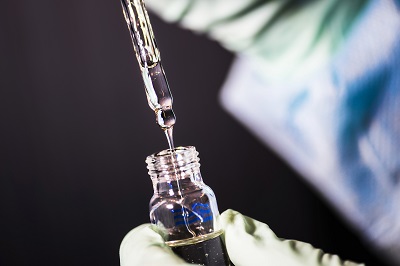The cost and timeline for applying for Class C medical device registration in Indonesia through the Ministry of Health (MOH) and BPOM can vary depending on several factors, such as the complexity of the device, the completeness of the application, and BPOM's workload. Below is an outline of typical costs and the estimated timeframe involved:
1. Cost of Class C Medical Device Registration
The cost for registering a Class C medical device in Indonesia generally includes registration fees, as well as fees for testing, inspections, and potentially consulting or local representation services if you hire an Authorized Representative (AR). The key components of the cost are:
a) Registration Fee
- The official registration fee for Class C medical devices is generally charged by BPOM.
- The exact fee can vary, but for Class C devices, it typically ranges from IDR 10,000,000 to IDR 30,000,000 (approximately USD 650 to USD 2,000).
- Note: BPOM may adjust these fees periodically, so it is advisable to check the official BPOM guidelines or inquire through your Authorized Representative (AR) for the latest fees.
b) Authorized Representative (AR) Fees
- If you are a foreign manufacturer, you will need to appoint a local Authorized Representative (AR) in Indonesia. The AR will charge a fee for managing the registration process, preparing documentation, and submitting the application on your behalf.
- AR fees typically range from USD 3,000 to USD 8,000 depending on the complexity of the device and the level of service provided.
- AR fees might also include the cost of translation services (if needed) and other administrative expenses.
c) Testing Fees
- If your device requires additional testing (e.g., safety, performance, biocompatibility, or electrical testing), you may need to pay for testing services at accredited laboratories.
- The cost of testing depends on the type of test required, but it generally ranges from IDR 5,000,000 to IDR 20,000,000 (approximately USD 350 to USD 1,300).
d) Other Costs
- Translation costs: Translating documentation (such as user manuals, instructions for use, clinical reports) into Bahasa Indonesia can add additional costs if not handled by the AR.
- Consulting fees: If you hire a regulatory consultant or third-party service provider for additional support during the registration process, fees may vary.
2. Timeframe for Class C Medical Device Registration
The timeframe for registering a Class C medical device in Indonesia can vary depending on factors like the completeness of the application, the type of device, and BPOM’s workload. Generally, the process takes several months, and it involves multiple stages of review. Here is an approximate breakdown of the timeline:
a) Preparation of Documentation
- Time Required: 1 to 3 months (depending on the availability of required data).
- This stage includes the collection of all necessary documentation (clinical data, technical file, risk management, labeling, etc.).
- The time required can vary based on how quickly you can gather all documents, including translation into Bahasa Indonesia.
b) Submission of Application
- Time Required: Once you submit the application through the e-Registration system, BPOM will begin reviewing it.
- The submission process itself is fairly quick (typically 1-2 weeks) as it’s done electronically, but ensuring the submission is complete and accurate will take time.
c) BPOM Evaluation
- Time Required: 3 to 6 months.
- BPOM will review all submitted documents, evaluate the safety and efficacy of the device, and may request additional information or clarifications.
- For Class C devices, BPOM may require additional testing, inspections, or a more detailed evaluation of the device, which could lengthen the review period.
d) Additional Testing/Inspection
- Time Required: If BPOM requests additional testing or an inspection of the manufacturing facility, this can add 1 to 3 months to the process.
- The testing or inspection timeline can depend on the availability of testing facilities and scheduling with BPOM.
e) Approval and Issuance of Marketing Authorization (NOM)
- Time Required: 1 to 2 months from when the evaluation is complete, provided no major issues are found.
- If BPOM is satisfied with the documentation and testing results, they will issue the Marketing Authorization (NOM), which allows the device to be legally sold in Indonesia.
Total Estimated Timeframe:
- The overall registration process for a Class C device can take approximately 6 to 12 months from start to finish, depending on the complexity of the device, the completeness of the submission, and BPOM’s workload.
Key Factors Influencing Cost and Timeframe
- Device Complexity: Devices that are more complex or higher-risk may require more extensive documentation, testing, and evaluation, increasing both the cost and time needed.
- Document Preparation: Delays in preparing the required documentation (especially translations) can extend the timeframe.
- BPOM’s Workload: BPOM’s review timeline can vary depending on the volume of applications and their internal processing capacity at the time.
- Testing Requirements: If additional testing is required, it can significantly impact both the cost and timeline.
Summary of Costs and Timeframe
- Cost:
- Registration fees: USD 650 to USD 2,000.
- Authorized Representative (AR) fees: USD 3,000 to USD 8,000.
- Testing fees: USD 350 to USD 1,300 (depending on tests required).
- Additional costs: Translation, consulting, and administrative fees.
- Timeframe:
- Total time: 6 to 12 months (depending on device complexity, BPOM’s workload, and testing/inspection requirements).
If you need more specific details about any particular step in the process or cost breakdown, feel free to ask!
.png)
.jpg)

.png)

.png)